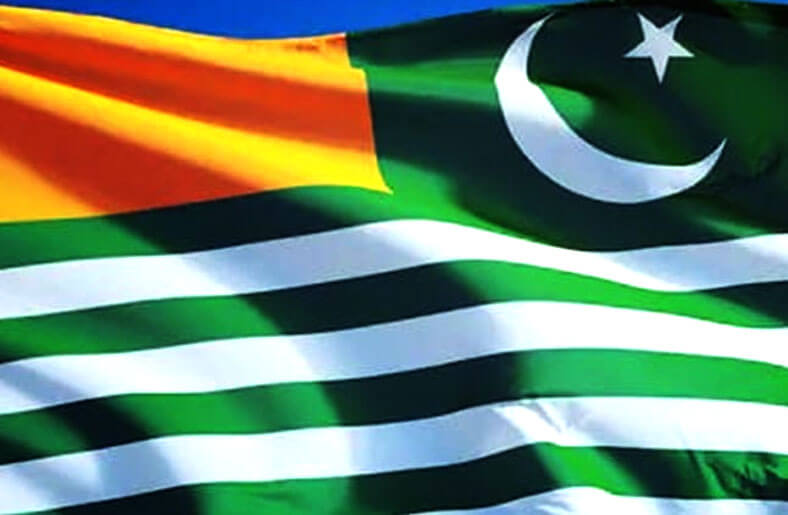Kashmir Day is observed on February 5 to show sympathy for Kashmiris suffering in occupied Kashmir. It is widely known throughout Pakistan and Azad Jammu, and Kashmir. Kashmir’s history is crucially important to investigate. Before partition, Kashmir was a part of the Indian Subcontinent; the Kashmir issue arose when Pakistan and India were separated. Kashmir has been a source of conflict between India and Pakistan since 1947, when they both claimed ownership of the region. Currently, Indian forces occupy Kashmir and continue to terrorize the local population. This nearly 70-year conflict has caused the deaths of tens of millions of people. Kashmir’s future remains uncertain, but Indian forces continue to ruthlessly battle Kashmiri nationalists because they have much to gain from the region.
Kashmir Day timeline and history
Kashmir was initially regarded as Heaven on Earth due to its incomparable natural appeal and beauty; yet, in its current status since 1947, it is sometimes depicted as hell for the Muslims tormented by the Indian government, which is the reverse of heaven. Even though the region’s symbol still shows Heaven on Earth, the people of Kashmir are being tortured by barbed wire, armed forces, and bloodshed.
At the time of the partition of British India, Jammu, and Kashmir was a princely state ruled by a Hindu Raja who, as a Hindu, wanted this region of breathtaking beauty to become a part of the newly established Indian state, despite the wishes of the people of AJK. Fearing AJK would fall under Pakistani jurisdiction due to the separation process, he allowed the Indian armed forces to take control of the region.
As a result, the war has persisted to the present day, resulting in the denial of the freedom to choose one’s nation to Muslims, who were subsequently tortured and murdered by Indian soldiers. Since 1947, this conflict has remained unresolved, causing severe political tension and instability in the international neighborhood and 1947, 1965, and 1971 wars between Pakistan and India. As a result, Pakistan considers the Kashmir conflict to be the central issue undermining regional stability and impeding economic and industrial growth.
Mian Muhammad Nawaz Sharif proposed the observance of Kashmir Day in 1990. Sharif called for a nationwide strike to condemn the Indian occupation of Kashmir and support the success of the Kashmiri liberation movement. In addition, he requested a national holiday for rallies against the unlawful occupation of Kashmir and urged the people to pray for the Kashmiri people. As a result, the government designated February 5 as Kashmir Day, which is still celebrated with the closure of nearly all public and private offices and enterprises, as well as marches, protests, and other events on a national scale.
Significance of the Day
Public processions, special prayers in mosques for the freedom of Kashmir, and demonstrations against Indian rule over Kashmir observe the holiday. Mirpuri Kashmiris hold support rallies in Azad Kashmir, Pakistan, and the United Kingdom. This day is also distinguished by the construction of human chains on all six significant bridges leading from Pakistan to Azad Jammu and Kashmir (AJK). People congregate and form lines while holding hands, telling Kashmiris they are not alone in their fight for independence. This day commemorates Pakistan’s assistance to the people of Indian-administered Kashmir throughout their struggle for independence. It honors Kashmiri martyrs who sacrificed their lives fighting for Kashmir’s continuing liberation struggle.
Kashmir Acrimony
After the British rulers chose to wrap up their involvement and return to their nation, the Indian Subcontinent was divided. Finally, everyone agreed that the parts of the Indian Subcontinent where Muslims lived would be part of Pakistan, and the rest would be part of India.
However, Lord Mountbatten and the Indian leadership at the time conspired against Pakistan and conquered Kashmir by force. As a result, Pakistan and India fought the first three wars to control the region. In 1949, though, the United Nations passed a resolution to let the people of Kashmir decide what would happen next.
Since the Indian armed forces occupied the valley, repeated attacks by the Indian armed forces have resulted in the deaths of thousands of Kashmiris. Independent sources and the media have supported the charges of human rights violations in Kashmir, resulting in thousands of Kashmiris’ deaths. Independent sources and the media have helped the accusations of human rights violations in Kashmir. Independent human rights campaigners assert that the valley has lost over 100,000 residents since 1989. Human abuse, victimization, rape, child torture, and the disappearance of children have been consistently reported in the region for the previous four decades.
Kashmir and its People
Despite the brutality of the Indian military, the Indian government could not silence the cries for independence emanating from every home in the Kashmir valley. Since August 5, 2019, Kashmiri youth have consistently protested the brutality of the Indian military. However, the Indian army imposed a lockdown on the entire state, which continues to this day. Hundreds of Kashmiris have died of starvation and dehydration in the past year and a half. People are stuck in their homes and unable to reach their jobs. Despite the lockdown, no day has gone by without the local youth protesting.
Pakistan’s Take on the Kashmir Issue
Regardless of the political climate, every nation has the right to independence. Therefore, we observe this day to demonstrate our concern for the people of Kashmir.
Since the United Nations passed its resolution to resolve the Kashmir issue following the wishes of the Kashmiri population, Pakistan has maintained a consistent position. According to Kashmiri citizens, Pakistan backed the resolution of the conflict. Each Pakistani Prime Minister and the government have raised the issue in foreign forums. The international community must take decisive measures to end the Kashmir dispute. If the volcano erupts, Kashmiris can take matters into their own hands. The international community should compel India to withdraw its military forces from the valley. Thus, the Kashmiris may resolve the issue.

